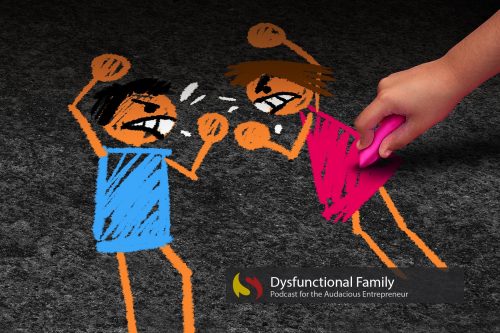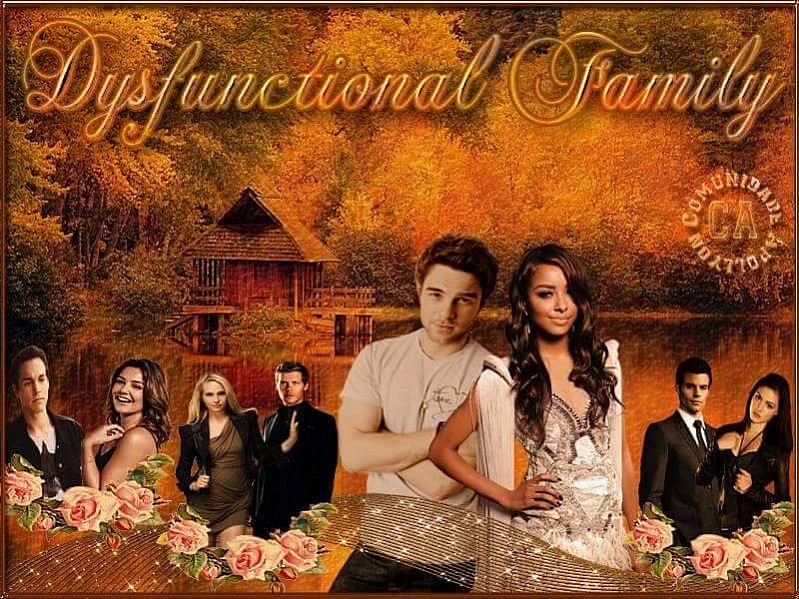
What are the 5 types of dysfunctional family dynamics?
Here are 5 types of dysfunctional families:The Substance Abuse Family. ... The Conflict-Driven Family. ... The Violent Family. ... The Authoritarian Family. ... The Emotionally Detached Family.
What are 3 characteristics of a dysfunctional family system?
Members of a dysfunctional family do not know how to openly communicate with one another, and often have serious communication problems. They sweep issues under the carpet, and never discuss them. They do not create a healthy environment for discussions, and often shout or have screaming fights.
What are the signs of a dysfunctional family?
Signs of a Dysfunctional FamilyAddiction. Addiction can lead to so many different unhealthy relationships among family members. ... Perfectionism. ... Abuse or neglect. ... Unpredictability and fear. ... Conditional love. ... Lack of boundaries. ... Lack of intimacy. ... Poor communication.
How do you break the cycle of a dysfunctional family?
Love is the number one ingredient you need if you wish to break the cycle of dysfunction in your family. Therefore, develop the habit of showing love to members of your family.
What happens when you grow up in a dysfunctional family?
Growing up in a dysfunctional family unit could result in frequent job loss, poor boundaries in relationships, and difficulty launching into adulthood. A study into the physiological trauma of children of dysfunctional families found that these types of units are usually distinguished by unharmonious parenting styles.
How do you know your family is toxic?
These signs can suggest toxicity: substance use that negatively affects mood or behavior. emotional abuse or physical violence as a result of intoxication. substance use that's hidden from outsiders and never discussed.
Is it OK to distance yourself from toxic family?
Remaining in a relationship with a toxic person is potentially harmful to your emotional and physical health and relationships (and may negatively affect your spouse and children, too). The bottom line is that for many people, the only way to heal is to remove yourself from the abusive relationship.
Why do families become dysfunctional?
Dysfunctional families are primarily a result of two adults, one typically overtly abusive and the other codependent, and may also be affected by substance abuse or other forms of addiction, or sometimes by an untreated mental illness.
What are the rules of a dysfunctional family?
Understanding The Rules of Dysfunctional FamiliesRule # 1: Denial. Dysfunctional families tend to operate in a state of denial about the problems the family is facing. ... Rule # 2: Silence. ... Rule # 3: Rigidity. ... Rule # 4: Isolation. ... Rule # 1: Honesty. ... Rule # 3: Flexibility. ... Rule # 4: Intimacy.
Can dysfunctional families heal?
You Can Heal From Your Dysfunctional Family With Time and Love. Healing from your dysfunctional family will take time — you didn't learn maladaptive behaviors overnight. However, with patience and effort, you can regain a healthy sense of self and way of functioning in the world.
How do you deal with a dysfunctional family as an adult?
Seek professional help. Try going to family or individual counseling. A professional therapist can help you identify dysfunctional family patterns you might not yet see and help you to create tools to set boundaries and lift yourself out of the situation at hand.
How do you fix a dysfunctional family?
Take responsibility for your life and feelings, and let others take responsibility for their lives and their feelings. Avoid mind-reading, blaming, scapegoating, rescuing, martyrdom, and being the target of someone else's blaming. Employ boundaries, and respect other people's boundaries. Be consistent.
KEY TAKEAWAYS COVERED IN THE PODCAST
In today’s episode of the podcast, your life could have been affected by having a dysfunctional toxic family.
Blog Below
In this episode, I will explain why families are important and introduce you to how having a dysfunctional family could have affected you.
EPISODE 55 – DYSFUNCTIONAL FAMILIES
Dream Big My Friend | Happiness | Purpose | Mindset | Personal Development uses RedCircle to distribute its content. Please see RedCircle's Terms and Privacy Policy for more info.
WELCOME TO THIS EPISODE WHICH IS ALL ABOUT DYSFUNCTIONAL FAMILIES
Welcome to this episode which is all about dysfunctional families, how to cope with one if you think your family falls into this category and how they are way more normal than you think.
Needless to say there are various degrees of dysfunctionality in families
Dysfunctional families can include anything from domestic violence, mental illness, unemployment, drug and alcohol, sexual, verbal or physical abuse to different forms of unhealthy toxicity (including mind-games, manipulation and favouritism) that wreaks havoc on relationships within the family.
1 – Know you are not alone
Dysfunctional families are just as common (if not more so) than functional families.
2 – Practice self care
You still need to take care of yourself – emotionally, physically and mentally – especially if the other important people in your life tend to drain you.
3 – Keep your expectations about your family realistic
At some point you need to accept that you will never, ever be part of The Brady Bunch.
We got who we got and when we expect them to be different we sort of set ourselves for disappointment
I’m sure my kids sometimes do it now with me and I know I did it with my own parents growing up.
What is dysfunctional family?
A definition of a dysfunctional family, “A dysfunctional family is that which is not operating according to its original design – faulty, impaired, not working properly for optimal results.”.
What is the root cause of dysfunction?
If that's true, then we all have first-hand experience with it. Chip reminds us that God came up with a plan to counteract the dysfunction that is so destructive and how that restoration can only begin when we recognize the full extent of our need.
